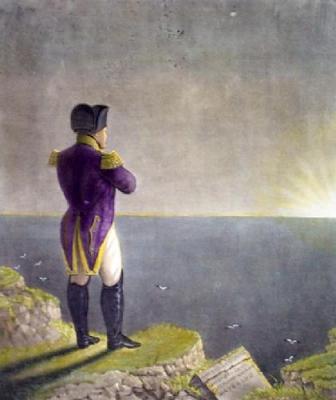Napoleon On An Age of Transition & The Dangers of A Militarist Government.
Napoleon On Alexander The Great.
Napoleon On Alexander The Great.
From, "The Mind of Napoleon: A Selection from His Written and Spoken Words," edited and translated by J. Christopher Herold. Columbia University Press: New York. 1955. Pg. 148-150.
[Conversation, December 1, 1805, on the eve of Austerlitz] In our time, since pagan religion has no more hold on us, our tragic theater needs a new motivating force. Politics must be the great mainspring of modern tragedy. Politics must replace on our stage the fatality of the ancients--that fatality which makes a criminal of Oedipus without his being guilty and which causes us to feel pity for Phaedra, whose crimes and weaknesses we blame in part on the gods. . . . . It is wrong to believe that tragic subjects have been exhausted; many can be found in political necessity, but someone is needed who can touch and vibrate to that chord. The principle of political necessity is a rich source of strong emotions, a fertile germ of the most dramatic situations, a new fate no less imperious, no less ineluctable than that of the ancients, whose [artistic] advantages it would recapture. All that is needed is to bring one's dramatic characters into conflict with a new set of passions, a new set of tendencies, under the absolute influence of that potent necessity. Thus everything that is called coup d'état or political crime would become a fit subject for a tragedy: horror being mitigated by necessity, a new and sustained kind of pathos would result.[Conversation, 1816, related by Las Cases] Great tragedy, the Emperor said, is the school of great men. . . . . It is not necessary, he asserted, to be a poet in order to appreciate it; it is enough to have a knowledge of men and things, to have elevated views, and to be a statesman. Warming to the subject, he continued: "Tragedy warms the soul, elevates the heart, can and must create heroes. In these respects, perhaps, France owes many of her deeds to Corneille. Indeed, gentlemen, had he still been living in my time, I would have create him a prince."
